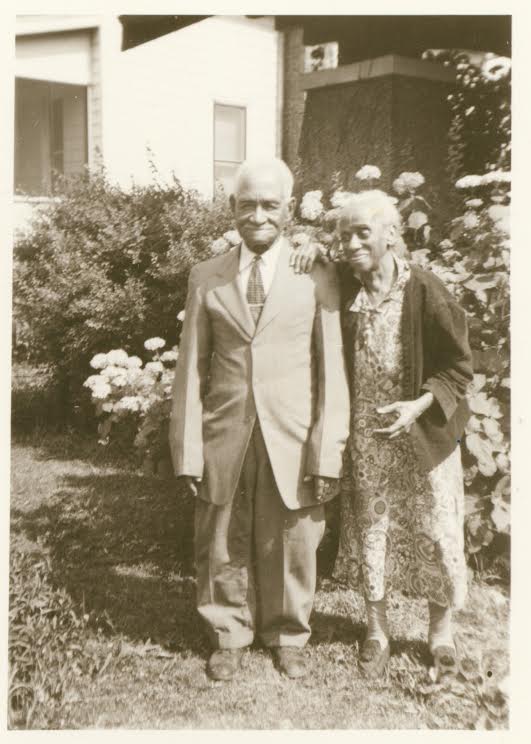Family champions black students, provides housing
Courtesy of Ames Historical Society
After moving from Georgia, Archie and Nancy Martin gave black men room and board in the Martin House. In 2004, Martin Hall in the Union Drive Neighborhood was named for them.
July 15, 2014
Editor’s note: In celebration of the 150th anniversary of our city, the Daily will highlight prominent figures, places and events in Ames’ history each week.
The long history of integration at Iowa State is highlighted by names like George Washington Carver and Jack Trice, but that history could never be considered complete without the inclusion of Archie and Nancy Martin.
The Martins moved to Ames from Austell, Ga., in 1915. Archie, born in 1857, worked as an assistant yard master with the Chicago and Northwestern Railroad, while Nancy, born in 1856, cooked for a local doctor and a greek house on campus, according to Ames Historical Society.
The Martins filled the void of reliable housing for African-American students in the Ames area for more than 20 years. Iowa State may have welcomed African-American students on campus, but residence policy did not allow black students to live with white students until the 1940s.
ISU President Albert Storms wrote a letter to a colleague in 1910, saying, “Negro students are entirely welcome at this institution; they have no discourtesy whatever shown them by fellow students or others. It is not always easy for a Negro student to find rooming and boarding accommodations except where there are enough to room and board together, as is the case with Filipinos and other nationalities.”
The Martins recognized the problem a few years later and the Martin House was born. According to Ames Historical Society, in 1919, Archie and three of his sons built what is now known as the Martin House at 218 Lincoln Way. The second floor of the house was equipped with three bedrooms and a bath set up for boarders. Over the years, at least 20 black students lived with the Martins while attending Iowa State, but there have been reports claiming as many as 10 students in a single year.
The Martins’ daughter, Nellie Elmira, joined her parents’ cause by housing black female students in her home at 118 Sherman Ave.
Students continued to be housed in the Martin House after Archie’s retirement in 1932. The couple had 12 children and lived in Ames until their deaths. Nancy lived to be 91 years old, while Archie lived to the age of 102.
The generosity of the Martins paid off in the form of some distinguished alumni, according to Ames Historical Society. James Bowman, who served as a Des Moines school administrator after serving with the Tuskegee Airmen, and Manhattan Project engineer Samuel Massie both roomed with the Martins while attending school.
Archie lobbied for black students’ residential rights throughout the ‘20s and ‘30s, according to a ISU News Service’s press release. He visited ISU President Raymond Pearson at least twice prior to 1926. Pearson agreed to admit black and white students into on-campus dormitories on an equal basis, but students came to Archie that fall complaining that it was still difficult to find housing.
The Martins continued to house students well into the 1940s when blacks finally found reliable housing on campus.
The Martins were recognized by Iowa State 80 years after they began housing students in their home. In 2004, the Board of Regents renamed Suite 2 in the Union Drive neighborhood to Archie and Nancy Martin Hall in honor of their contributions to Iowa State, according to the press release. Today, it’s more often recognized as Martin Hall.
The Martin House still stands on Lincoln Way.







